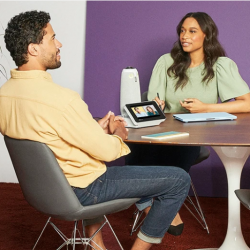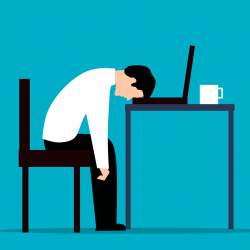To provide the best experiences, we use technologies like cookies to store and/or access device information. Consenting to these technologies will allow us to process data such as browsing behaviour or unique IDs on this site. Not consenting or withdrawing consent, may adversely affect certain features and functions.
The technical storage or access is strictly necessary for the legitimate purpose of enabling the use of a specific service explicitly requested by the subscriber or user, or for the sole purpose of carrying out the transmission of a communication over an electronic communications network.
The technical storage or access is necessary for the legitimate purpose of storing preferences that are not requested by the subscriber or user.
The technical storage or access that is used exclusively for statistical purposes.
The technical storage or access that is used exclusively for anonymous statistical purposes. Without a subpoena, voluntary compliance on the part of your Internet Service Provider, or additional records from a third party, information stored or retrieved for this purpose alone cannot usually be used to identify you.
The technical storage or access is required to create user profiles to send advertising, or to track the user on a website or across several websites for similar marketing purposes.
 More than half of the nation’s employers (53 percent) feel that they don’t know their employees even slightly well on a personal level, claims a new office worker survey. (more…)
More than half of the nation’s employers (53 percent) feel that they don’t know their employees even slightly well on a personal level, claims a new office worker survey. (more…)





 Ricoh UK has published a report called
Ricoh UK has published a report called 


 Programmes aimed at supporting employees’ health and wellbeing can also benefit their social relationships and reduce bullying, according to a new study by researchers from the
Programmes aimed at supporting employees’ health and wellbeing can also benefit their social relationships and reduce bullying, according to a new study by researchers from the 
 The
The 
 The so-called green agenda, sustainability and climate change have finally hit centre stage. Various announcements are being made by UK Government and numerous high profile figures are crying a call to action to implement carbon reduction plans now. Lord Mayor of the City of London, Alderman William Russell, stated at the
The so-called green agenda, sustainability and climate change have finally hit centre stage. Various announcements are being made by UK Government and numerous high profile figures are crying a call to action to implement carbon reduction plans now. Lord Mayor of the City of London, Alderman William Russell, stated at the 
 More than half of young professionals (those aged 16-34), feel burnt out right now, according to new research exploring experiences of burnout pre and post pandemic from people analytics company,
More than half of young professionals (those aged 16-34), feel burnt out right now, according to new research exploring experiences of burnout pre and post pandemic from people analytics company, 
 A new research report released by
A new research report released by 
 The
The 
 Almost half (47 percent) of employers report having vacancies that are hard-to-fill, and more than one in four (27 percent) expect the number of vacancies that are difficult to fill to increase in the next six months. This is a key finding of the latest quarterly
Almost half (47 percent) of employers report having vacancies that are hard-to-fill, and more than one in four (27 percent) expect the number of vacancies that are difficult to fill to increase in the next six months. This is a key finding of the latest quarterly 
 According to
According to 
 An innovative hybrid-power shading solution has been launched which brings all the benefits of motorised blinds with none of the costly power supplies and electrical works to occupants and designers of commercial buildings.
An innovative hybrid-power shading solution has been launched which brings all the benefits of motorised blinds with none of the costly power supplies and electrical works to occupants and designers of commercial buildings. 






